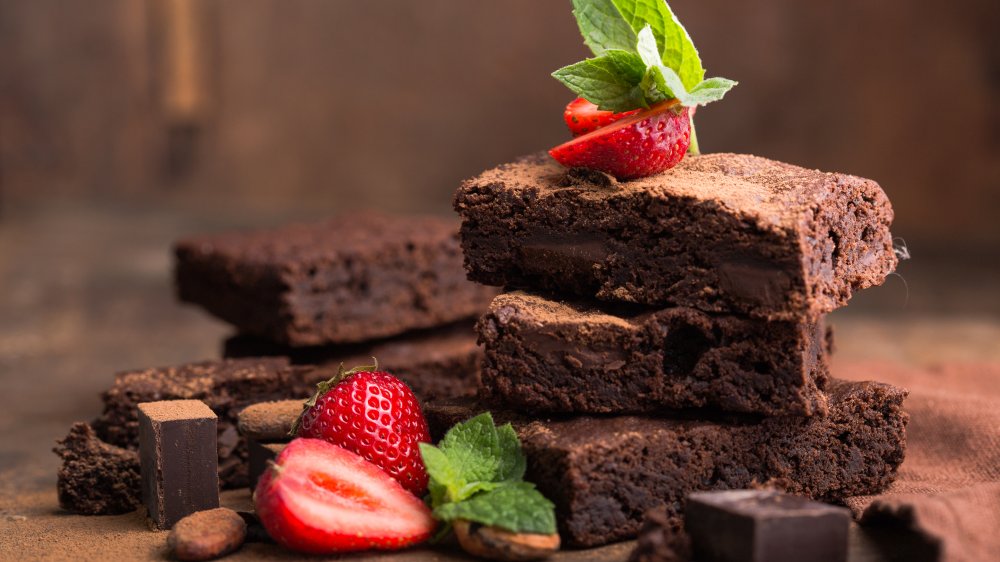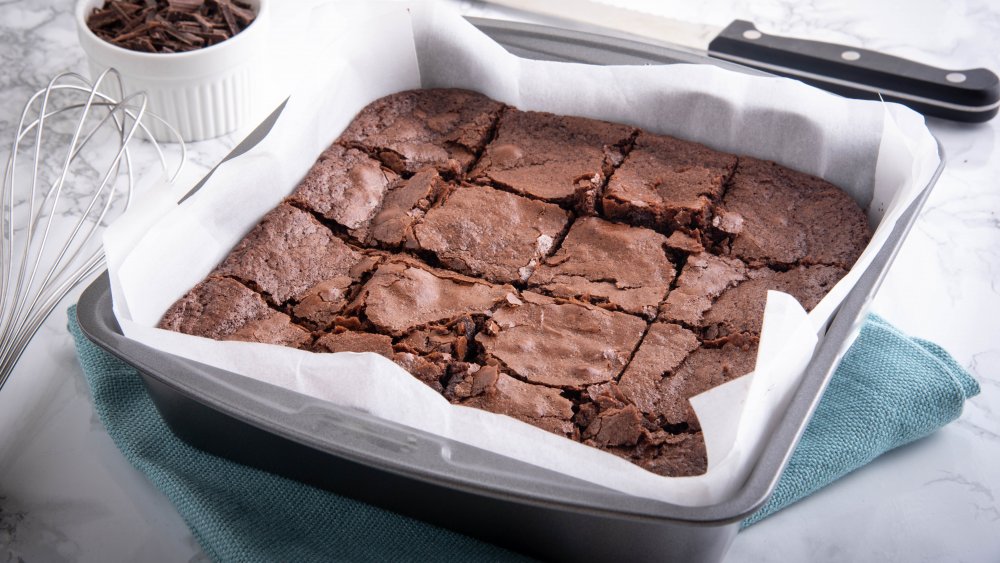Pastry Chef Breaks Down The Best Way To Make Brownies
No matter how refined your tastes and how expert-level your baking skills, there are times when you're not in the mood for a madeleine or a macaron (or a macaroon, for that matter). Instead, the one thing you're craving is a good old fudgy, chewy brownie. Whether you prefer edges or inside squares, there's just something about a brownie that makes you feel like you're 8 years old again and all is right with the world.
While you can dress your brownies up with secret ingredients ranging from stout to sour cream, the one thing you shouldn't be using to make them is a mix. While boxed cake mix can produce a pretty good product, for some reason brownies made from a mix always seem to come out with a weird chemical or plastic taste. Baking brownies from scratch isn't that difficult, but you do need to take care to avoid some common mistakes. In order to find out how to get brownies that turn out perfect every time, we talked to Florent Cheveau, the Executive Pastry Chef at MGM Grand.
Cheveau was named as one of the top chocolatiers in the world at the 2018 Cacao Barry World Chocolate Masters Competition, winning the award for "Best Fresh Pastry" (via Vegas News). While his winning entry was for a chocolate tart, Cheveau is equally happy turning his expert touch to creating the humbler — but no less exquisite — brownie.
Top tips for best brownies
Cheveau says that there are "a few musts" when it comes to baking the perfect brownie. First of all, you should begin by whipping the eggs and sugar together until fluffy. According to the chocolate master, "This helps ensure the sugar is completely dissolved and creates the soft, fudgy texture." You'll next add in the dry ingredients (sifted, of course), the melted butter, and the chocolate — but not just any chocolate. Cheveau insists that the most important ingredient in brownies is "good quality chocolate," and says he favors one that is 66 percent cacao. Rather than melting the chocolate, however, he suggests chopping it with a bread knife. This method, he says, "create[s] different-sized chunks that will spread out within the batter."
Once you pop the brownie pan in the oven, be sure to keep an eye on the time. Cheveau advises undercooking them just slightly, though. "If you overbake your mixture, your brownies will become dry," he explained. (Although Cheveau doesn't specifically endorse it, you could always try Alton Brown's trick for preventing overdone brownies by taking the pan out of the oven for a 15-minute pause mid-bake.) Once the brownies are done, Cheveau suggests they are best enjoyed with a glass of cold milk (classic!) or a cup of coffee. (Though wine is always good, too).

